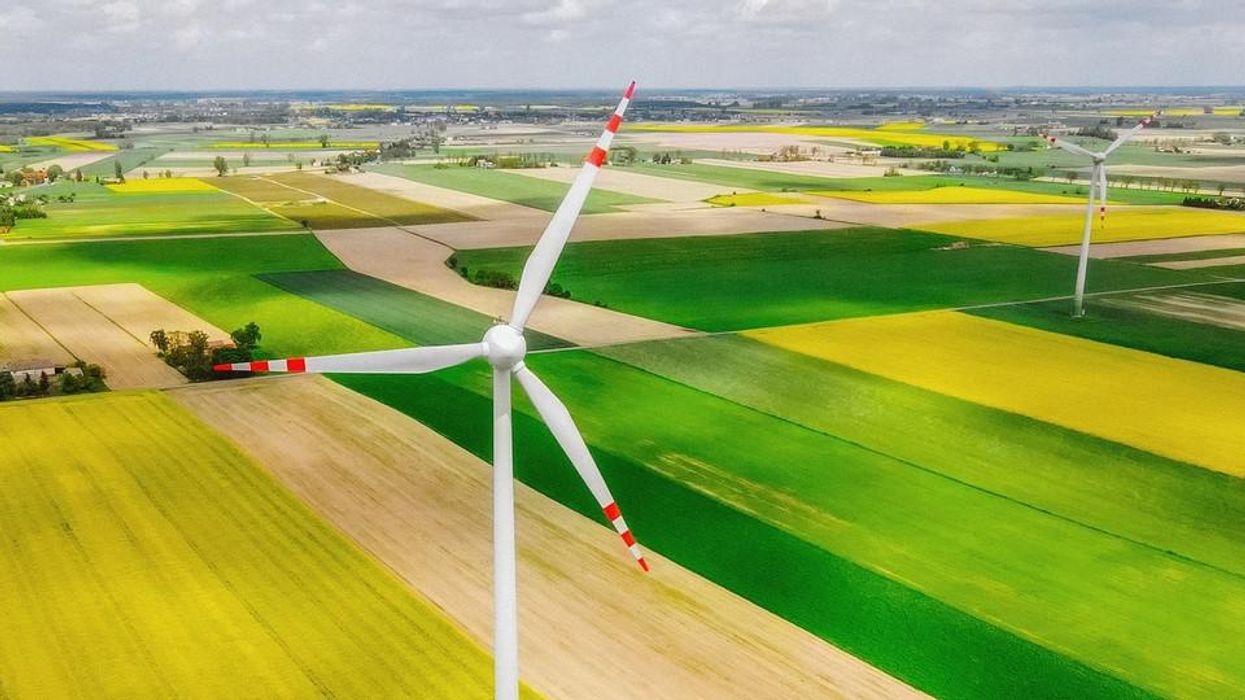Why Are Texas Republicans Taxing Their State's Abundant Clean Energy?
Texas is currently America's leader in wind and solar power. It provides 28 percent of America's wind energy. If it were a country, it would be the fifth biggest source. Surprisingly, it's about to eclipse California in production of solar power.
And so why aren't Texas Republicans bragging about all that? Why, on the contrary, are they attacking clean energy with regulatory and tax burdens? Perhaps it's their co-dependance with oil and gas interests.
On the psychosis level, renewables serve as a right-wing culture-war toy. After all, they are the pride and joy of President Joe Biden and concerned environmentalists everywhere. Same goes for the science behind planet warming.
Renewables have become "a four-letter word," according to a big Texas landowner trying to stop a real rancher from putting a wind farm near his rich-man ranch. (His land is his land, and so is his neighbor's.)
This leads to a plausible guess: Some of the older Texas money sees green energy's amassing of economic power — with its growing empire of wind turbines and solar farms — lording over parts of Texas they're supposed to be lording over.
Well, we will need fossil fuels for the near future, but they are headed into the sunset. We don't power our lamps anymore with whale oil.
If there weren't so many Texans gaining economic benefit from America's green energy policies, one might say, "Boys and girls, go out and play your game."
But they're going after a source of big money and bigger money to come. In olden times, Gov. Rick Perry likened the state's wind projects to Spindletop, the spectacular 1901 gusher that turned Texas into an oil giant.
Last year, over a third of the country's clean-power projects were in Texas. One reason, ironically, is that Texas is a low-regulation state that lets people easily build things. Plus, it has loads of open land swept by mighty winds.
But one of the bills before the legislature would require renewable energy projects to get permits from the state and an environmental impact statement from the Parks and Wildlife Department. Any property owners "within 25 miles" could call for a hearing. It goes on.
The Earth Liberation Front would look on that regulatory aggression with envy.
You would think that the self-interests in green energy would stir some brain cells in the Texas Capitol. But Gov. Greg Abbott blamed the 2021 electricity blackouts that left millions of Texans without heat in frigid temperatures on ... wind turbines. They did freeze, as did gas-powered plants, coal-fired plants and a nuclear plant.
Industrial and consumer users of energy are complaining that the proposed disincentives for green energy will drive up their electricity costs. One of the biggest developers of renewables in Texas, Enel, now says it might reconsider its expansion plans if confronted with new bills targeting their projects with higher costs.
(Imagine a governor in Florida threatening his largest taxpayer and employer over some minor disagreement and then the company saying it would halt a big planned development. These are strange times we live in.)
Two years ago, Elon Musk moved his electric vehicle carmaker, Tesla, to Texas. His plan was to "end the Oil Age." And when Donald Trump pulled the U.S. out of the Paris Accords, Musk quit Trump's advisory council.
Sure, Musk has gone mental over woke activism — whose clout he greatly overestimates — but you wonder what he thinks about the bold efforts in Texas to punish the very industry he relies on. America now has 55 plants making EVs.
As for the Texas political leaders or anyone else who wants to stymie green energy: What's wrong with these people?
Follow Froma Harrop on Twitter @FromaHarrop. She can be reached at fharrop@gmail.com. To find out more about Froma Harrop and read features by other Creators writers and cartoonists, visit the Creators webpage at www.creators.com.
Reprinted with permission from Creators.











